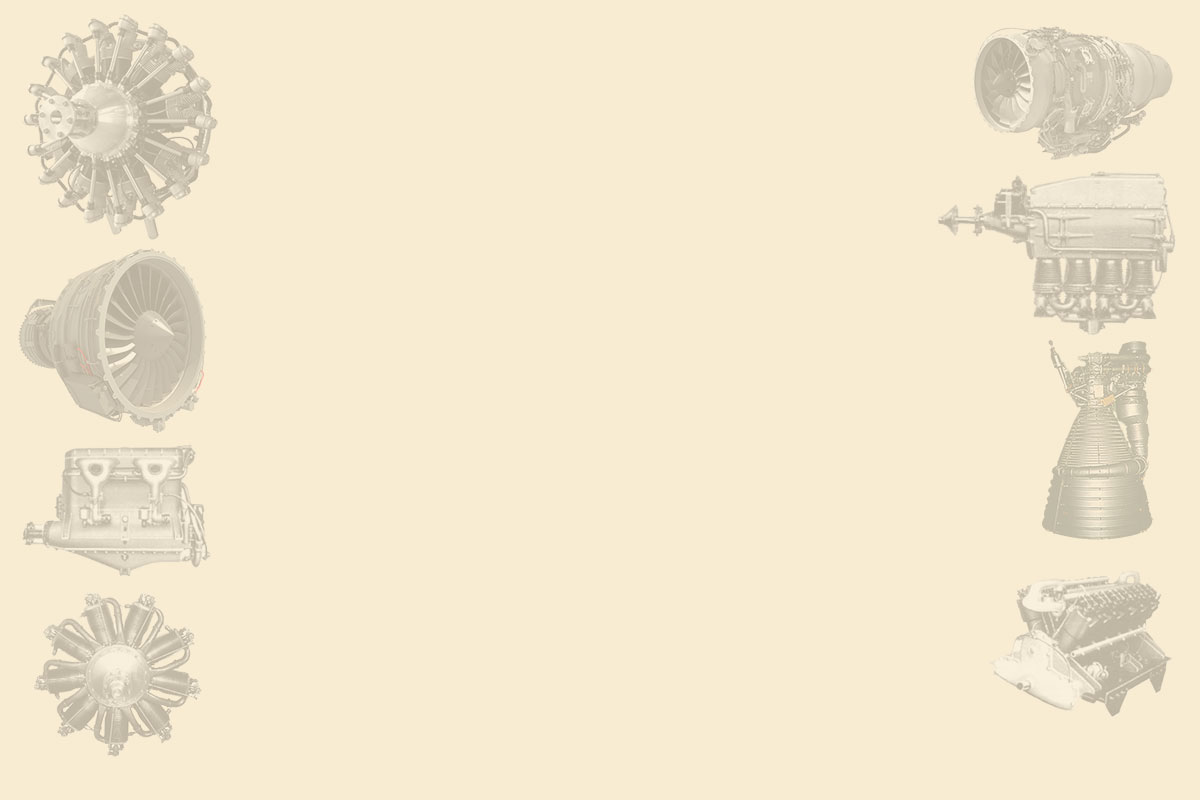Updated: 25-Aug-2020
With the base of Volkswagen, this Arizona brand adapts them for use on a high percentage of EAA homebuilts.
-The G, E, 2 and S series are known. The Hapi 60-2 is shown, with exhausts included. Now it's Mosler.
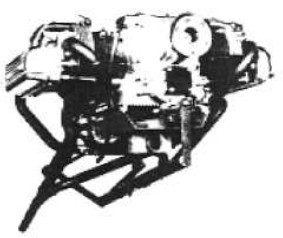
“Hapi, 60-2”
From Appendix 6: The author has located a HAPI engine installed on an ultralight at a sports field in Bages, near Manresa in the province of Barcelona, Spain.
-With the surprise of seeing that the Volkswagen modification was made on one of the automobile engines manufactured in Brazil.
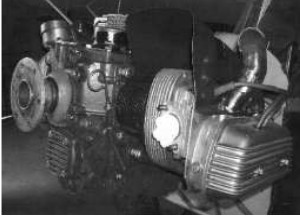
"The HAPI seen from the left-front side"
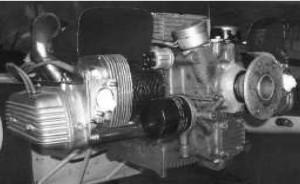
"The HAPI on the right-front side"
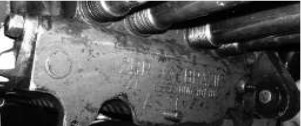
“Crankcase cast details”
-In the crankcase or oil tank there are cast reliefs that clearly indicate the Brasilian origin of this enginel (and Audi rings as well) together with the model marks 2BR and AS21.
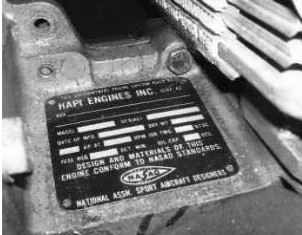
“HAPI engine plate”
-In the identification plate on the engine block between the front and the oil radiator we read that the engine is a Hapi Engines Inc., for use in experimental aviation and according to Nasaq standards. It may not be approved by the FAA.
From Appendix 12: On the basis of VW, a "half VW".
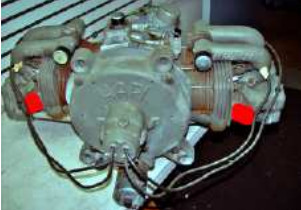
“HAPI half VW engine” (PiP)
Engines of HAPI
Model: 2 series
Arquitecture:
Cooling:
Total Displacement:
Bore / Stroke: x
Power:
Weight:
Model: 60-2
Arquitecture:
Cooling:
Total Displacement:
Bore / Stroke: x
Power:
Weight:

"Hapi, 60-2 engine, right-front view"
Model: E Series
Arquitecture:
Cooling:
Total Displacement:
Bore / Stroke:
Power:
Weight:
Model: G series
Arquitecture:
Cooling:
Total Displacement:
Bore / Stroke: x
Power:
Weight:
Model: S series
Arquitecture:
Cooling:
Total Displacement:
Bore / Stroke: x
Power:
Weight:
